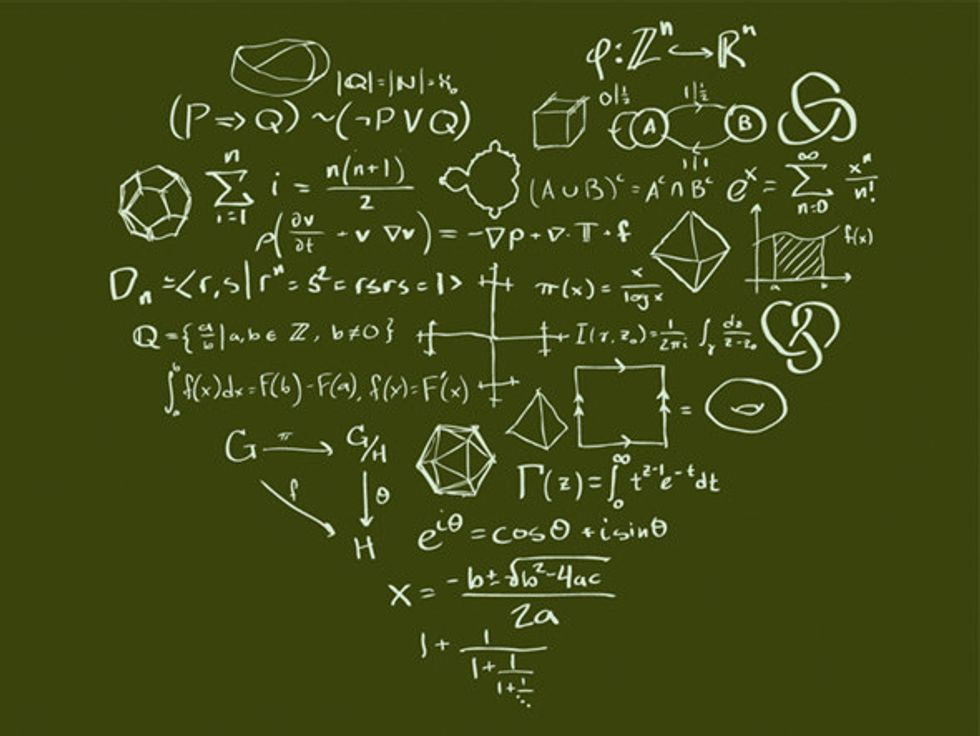Sometimes the theories I learn about in my psychology courses almost seem like common sense because they are so directly applicable to life. Here are 5 theories or phenomenons I've learned about in the last three years that seem directly relevant to a lot of people's lives.
1. You can be smart and fail college.

There are many different theories of intelligence, but the most common or implemented idea today is that we have a relatively stable IQ that represents our intelligence. The public education system in America certainly focuses on this traditional idea of intelligence. While IQ scores are a decent predictor of high school grades, they do not correlate highly with college grades! The theory is that this is because earning grades in colleges requires more motivation than basic intelligence.
2. Commitment is an equation.

Thibaut & Kelley (1959) had a theory that your relationship satisfaction and commitment levels could be broken down into a theoretical equation. One of the key determinants in your commitment level to a relationship is what you believe you've invested in this relationship.
Have you ever had a friend who recognizes that her relationship isn't great, but she's been with the guy for 3 years so she doesn't want to end things? We are more committed to relationships we've put time, effort, resources, or money into.
So when your friend won't leave her terrible boyfriend of 3 years, encourage her to think of it not as "3 wasted years if I give up now!" but "up to 60 more wasted years if you don't get out now!"
3. Celebrities are attractive.
 US-MUSIC-GRAMMY AWARDS-TROPHY
US-MUSIC-GRAMMY AWARDS-TROPHYWhile beauty may be in the eye of the beholder, there are some traits that are nearly universally attractive to humans. One of these commonly attractive features is symmetrical faces. Why do we like faces that are more symmetrical? For two reasons, first they are typically a sign of health, and second, they are more easy to process. We are cognitively lazy, so if someone's face is symmetrical we have to do less work to perceive them.
Many celebrities, like Beyonce, have very symmetrical faces!
4. People you don't know are all the same.
There's a phenomenon called out-group homogeneity bias. Basically, this means that we view anyone who is a part of a group we are not in (out group) as more similar than they are (homogeneity bias). Many people who live in America may categorize all Canadians as nice- because we aren't from Canada. I often refer to my sorority as a really diverse group of women with a range of personalities, but it's easy for me to think of other groups of women as all one type of person.
This gives rise to a lot of stereotypes and prejudice. So next time you think "all men are awful" remember that you're generalizing about a large group of people.
5. There's a stage between adolescence and young adulthood.

Developmental psychologists have started discussing a new stage of life - emerging adulthood. Do you feel like you're not a real young adult yet? I'm not ready to get married and have kids and settle down, but at the same time, I know I'm not a teenager anymore, I'm definitely not who I was in high school. Emerging adulthood is a new stage of life that many people go through in Western/developed countries now. It's a time characterized by a lot of exploration and change.
So if you don't feel like a "real adult" yet but you're not a kid anymore, maybe you're going through a period that many people do in their early 20s. It is becoming normalized to explore your options and move around for a while now.
Sometimes knowing a psychological theory helps you understand why you act the way you do. Other times it helps you be aware of and potentially stop a harmful behavior. Ever since learning about out-group homogeneity bias I've consciously tried to avoid making generalizations about people. Knowing someone belongs to a group shouldn't lead you to believe you know exactly what they are like.



















